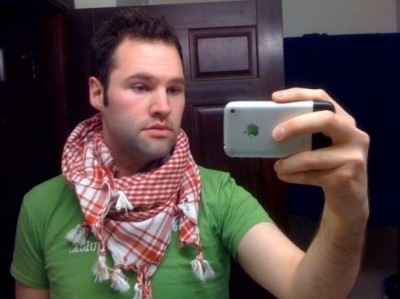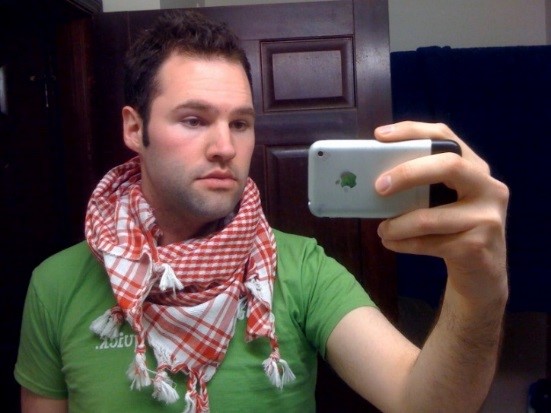
Some people study whales. Some people study epistemological analysis. I study white people.
More specifically, I am interested in diaspora networking and migrant housing stock, but I am also interested in the way whiteness as a concept affects these in host countries. A lot of the time, that idea means things like deeply analyzing the absolutely fantastic housing stock of Pittsburgh for Irish Victorian, Polish, and Ukrainian influences. Generally, though, it means that I take interest in how the idea of being white is coded as normal, superior, or the center of society. Sometimes, I take these critiques to societies as a whole: I have written several times for New Voices about this tendency in Israel and Jewish history, and touched upon it in our little blog-war with Costa Rican writers this past winter. More frequently, the critique is internal: part of thinking about whiteness is “unpacking the invisible knapsack” of advantages we white people have. My teshuvais to think about this knapsack of mine.
I apply this analysis in turn to Israel and the Jewish world, which exhibit these trends much like anywhere else. Think about, for example, that unfortunate tendency to ask people of color “why they are in synagogue.” Or the fact that class is closely correlated with Ashkenazi- and Mizrahi-origin in Israel, or that a disproportionate number of Mizrahi migrants were settled in poor development towns. Most of the time, my critiques are raining down upon the Israeli right, who insists everything in Israel in this regard is hunky-dory. NO.
But sometimes, it is necessary to yell at those who often agree with me. I’m looking squarely at the Left. Now, one would think that Leftists would always best the rest of us at checking their white privilege, giving a voice to Palestinian, Mizrahi, and Ethiopian activists, or generally at you know, not being racist. Unfortunately…a lot of these folks are white saviors. They see their activism as the be-all and end-all of Palestine.
Katie Halper discusses the trend of the “fetishization of all things Arab” in her critiques of liberal Zionists, and I think this is a good place to start. There is a romanticism and othering of Palestinians that presents the people as noble victims, in need of rescue and as completely “authentic” in tradition. But how demeaning and distancing that is! Fundamentally, Palestinians want to be recognized as human – and not as an open-air museum of “authentic cooking” or “ancient tradition.” So firstly, take your Orientalism home.
There is also a disregard for the diversity and variety of Palestinian activism, and of the same in Israeli civil society. Palestinian civil society does not begin and end at B.D.S. – and some of the things that Palestinian groups are fighting for may be inconvenient for white narratives. It is all well and good to call out pinkwashing – I myself am published doing so– but one must also acknowledge that Palestinian LGBTQ groups have a lot on their plate within Palestine. Yet so many activists romanticize the Palestinian queer experience – in total disregard for Palestinian narratives themselves. (Admittedly, the hasbara machine is probably more horrifically blatant here.) Meanwhile, many white activists also disregard the many voices in Israeli civil society opposing the Occupation – B’Tselem, Gisha, and Yesh Din among them – because their ideologies do not exactly match the activists’. Or simply that these activists are Israeli. (But it should be noted that the Israeli left can be truly maddening.)
There is also the casual ignorance – especially among Ashkenazi activists – of race and ethnic politics in Israel. Yes, yes, the plight of the Palestinians is the concentration – but let us not forget that we as white folk, and especially those of us who are like myself, have a huge amount of privilege within Israel. So when we talk about the effects of the Occupation on Israeli society, we should remember that a lot of the time it is people who look like us telling brown people (Mizrahim and Ethiopians) where to go. So whatever Sarah Schulman says, remember that at the end of the day, those soldiers on the front? They’re not exactly like you, nor do they look like you. And they’re a bit resentful at your assumption that their experience doesn’t matter.
Because it does. Zionism was always about the Ashkenazi experience. Most Mizrahim are descended from people forced out of their homelands,then pushed into poor neighborhoods and development towns far from any opportunities. Sephardim and Mizrahim were considered by the core of Zionists – the “ahusalim,” as Baruch Kimmerling termed them – to be outside the project, until Likud used their vote to overthrow the old elite in the 1977 election. Through the 1970’s, left-wing Ashkenazim sought to “reform” and “erase the Arab in” Mizrahim. This, mind you, was done in the name of the left. To assume that all Jews are Ashkenazi – as so many left-wing activists do – is to simply perpetuate a racist erasure.
And let it be known that contrary to popular opinion, Palestinian activists are often more aware of this history than anyone else. When Likud misuses this history to justify the occupation,these activists need to know how to counter it. Not to mention that many Palestinian activists probably wonder if you, the white savior, also lump the kaleidoscopic and multifaceted society that is Palestine and its diaspora into one group for your comfort.
These critiques are often dismissed in the name of activism – but the problems are not magicked away. I have heard people say: “Is this what we really need to be concentrating on right now?” or “Well, it’s not the Occupation.” Just because it’s lesser however, does not make it any better. Firstly, it actually makes activism harder: how much can you help Palestinians if you’re bleeding white privilege all over them? It is better to be respectful and concentrate on the goal, even if it means a reduction in personal glory. Secondly, it adds fuel to the nationalist fire in Israel. I cannot count how many times I’ve heard any sort of human rights activism dismissed as a “rich Ashkenazi” problem– and the paternalistic and racist attitude towards Palestinians and Mizrahim alike just contribute to this idea. Finally, and most importantly: your work is ultimately about people. These sorts of attitudes and behaviors make people less willing to trust, and less willing to make a better world.
White people in Morningside Heights and Berkeley are not going to liberate Palestine. Palestinians will. I think this point needs to be emphasized again, and again, and again. It is fine to be sympathetic, fine to give money or work for Jewish Voice for Peace or Not in My Name. What is not fine is to take your savior complex and use it to perpetuate old wrongs.
If you do that, please just stay at home.
Jonathan P. Katz will soon be a student at Oxford University.

